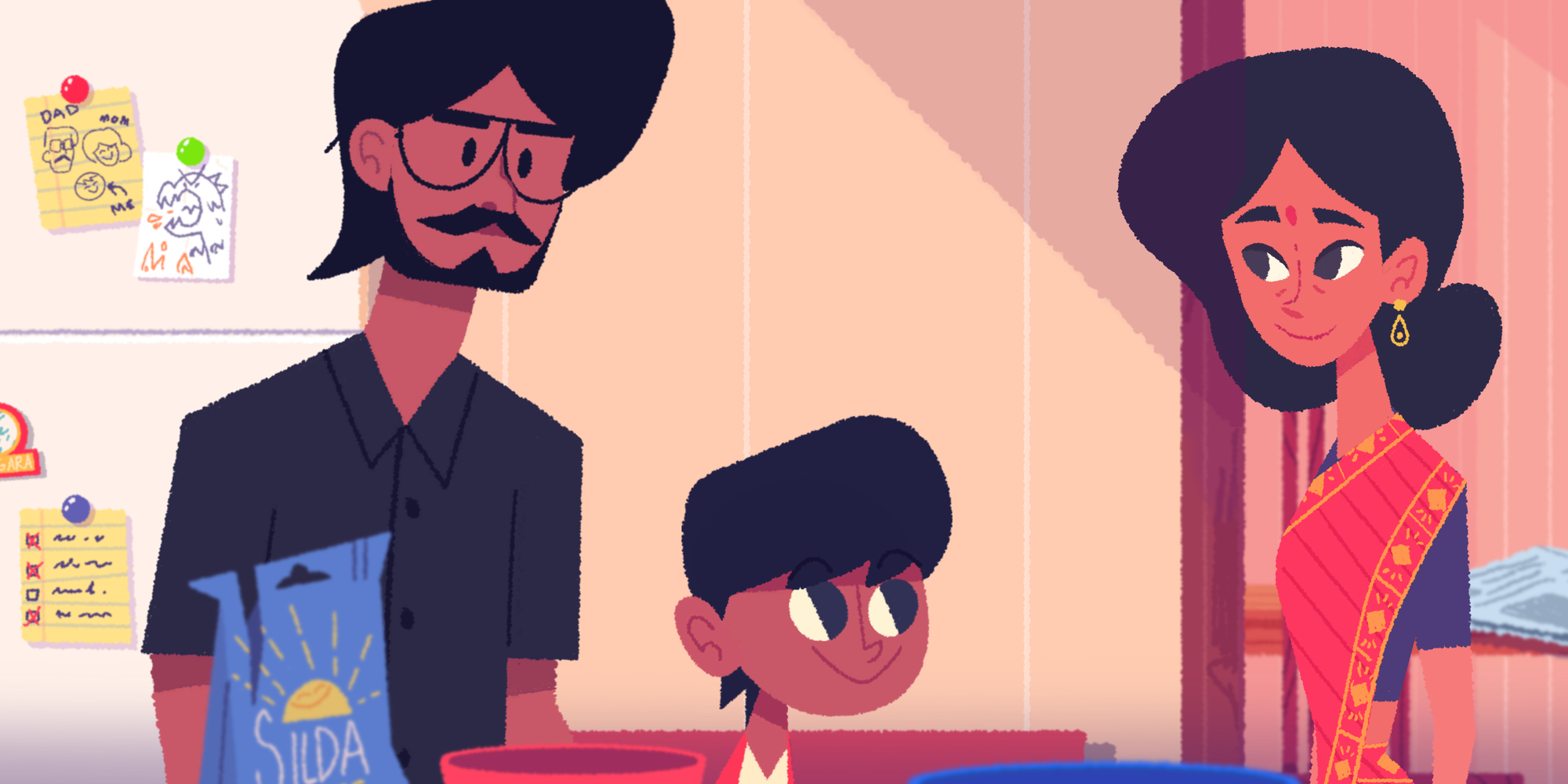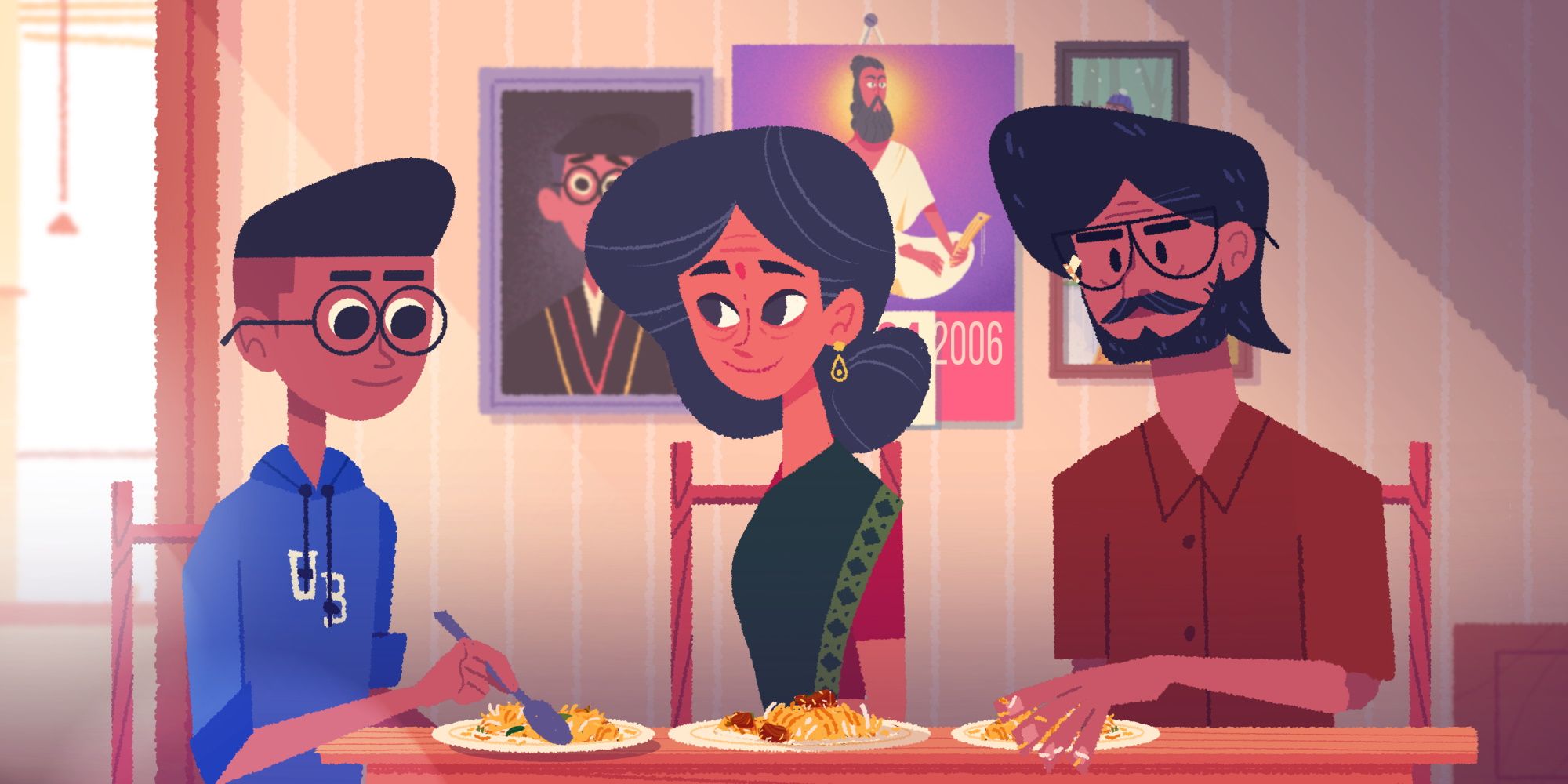This article contains spoilers for Venba. It’s extremely short and available on Xbox Game Pass, so you really should play it first, then come back and read this. It’s worth it.
Venba only takes an hour or two to finish, but it had me thinking back over the last decade of my life. The new narrative cooking experience from Visai Games takes its name from its main character, an Indian woman who has immigrated to Canada with her husband, Paavalan, in hopes of providing better opportunities for their son, Kavin, as he grows up.
But as Kavin goes to school and becomes more independent, he becomes deeply embarrassed by the things that make his Tamil family stand out from his White classmates. Those things, like his fragrant home-cooked lunches, are also the things that are deeply important to his mother. Though they mark Kavin as different — the worst thing to be as a kid among other kids still figuring out who they are — the recipes are a link back to Venba’s family in India.
Early on, you find out that her mother taught her a bunch of the recipes the night before she and Paavalan left for Canada. As you attempt to cook them, some of the written recipes are illegible and Venba has to try to remember that night. The process of making food, with its smells and colors and flavors, is a direct link to her old life, a life that she and Paavalan both miss dearly. But it takes Kavin a long, long time to come around to the importance of his cultural heritage.
When a story like Venba comes along — one that is firmly rooted in a specific cultural perspective — White people often react negatively, saying that they can't relate to it because the details of the characters' lives are so different from their own. When Pixar's Turning Red launched on Disney Plus last year, one critic dismissed it, saying that "the target audience for this one feels very specific, and very narrow. If you are in it, this might work well for you. I am not in it. This was exhausting.”
That tweet garnered a lot of criticism and the reviewer quickly deleted it. But it was emblematic of a way that White men can sometimes view media that doesn't directly cater to us. Most Hollywood stories center us, so White men don't always get the training in empathy that members of marginalized communities get as kids, the ability to connect to something on the basis of what we share with it, not on the basis of what doesn’t match our experience. Most movies star people who look like us, so we don't have to imagine what it would be like to see ourselves as the hero, our experiences represented with respect.
Stories like Venba or Turning Red getting saddled with words like "narrow" or "not universal" is a failure of imagination on the part of the player or viewer. I was not a Korean-Canadian girl growing up in Toronto in the early 2000s, but that doesn't mean there isn't something for me to relate to in Mei’s experience. If you're human, you can find something to relate to in another person's story. And while I wasn’t a second-generation immigrant kid like Kavin, I think most people who go through an angsty phase as teenagers (so, most people) can relate to hurting their parents’ feelings and regretting it later.
For me it was going to an evangelical college and rejecting the specific kind of Protestantism I grew up with in favor of a different kind of Protestantism, being an argumentative asshole about it, and making it clear I thought my parents raised me in a way I disagreed with. I look back on that now and cringe, but I think that’s normal regardless of the culture you grew up in or the new milieu you discover in your college years. Kavin has a similar experience late in the game, realizing that he hurt Venba by rejecting the culture she and Paavalan came from.
Venba is universal because it reminded me of how exciting it was to leave and be on my own, while also reminding me of how sad my mom was when I made her and my dad empty nesters. You don’t need to be an Indian immigrant to Canada to relate to the story Venba is telling. You just need to be open to the idea that other people are people.



